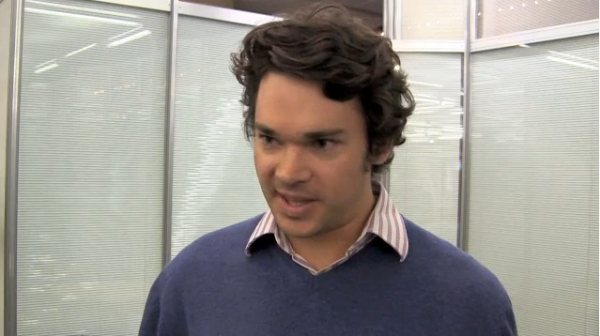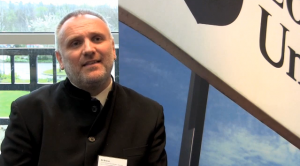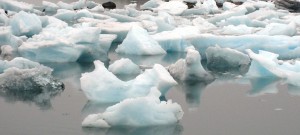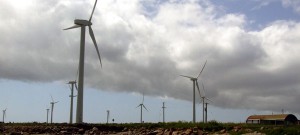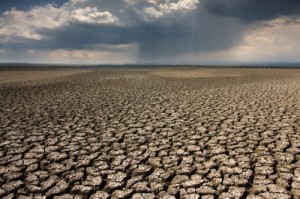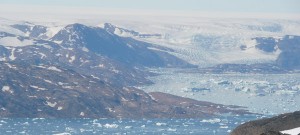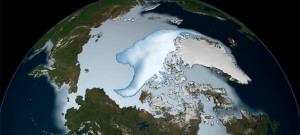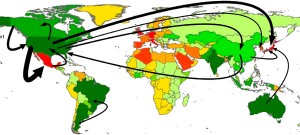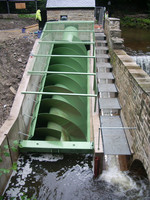Research
LCEDN VIDEO: Putting communities at the heart of energy projects
Speaking at the first conference of the Low Carbon Energy for Development Network, Practical Action’s Ewan Bloomfield talks about the importance of having the community at the heart of them.
LCEDN VIDEO: Multi-disciplinary approaches needed to low-carbon research
Speaking at the first conference of the Low Carbon Energy for Development Network, Ed Brown, the network’s Co-coordinator warns that the UK must break away from technological determinism.
Just 15% of Antarctic ice shelf remains
Latest European Space Agency data shows continued disintegration of Larsen B ice shelf.
Research breakthrough: CO2 rises caused warming that ended last ice age
Compelling new evidence suggest that rises in CO2 caused much of the global warming responsible for ending the last ice age, strengthening the link between CO2 and rising temperatures today.
Climate change warming oceans for more than a century
New study comparing modern temperature records with data from 1870 suggests the world’s oceans have been warming for more than 100 years.
New research finds some corals could survive climate change
El Nino warming cycle survivors give new clues and improve prospects for some coral environments.
Planet under Pressure ends with six recommendations for Rio+20
Conference ends with declaration that science must take a central role in shaping and influencing policy discussions ahead of Rio+20.
New study recommends seven steps to sustainable farming
New report outlines seven measures that will enable world to feed population of 9 billion by 2050 while reducing agricultural carbon emissions
SEI: Scarcity of metals could hamper low-carbon development
Stockholm Envrionment Institute warns that low-carbon development could be hit if business and policy makers don’t address resource scarcity concerns.
World could see 3 degree warming by 2050
BBC project examining thousands of simulations finds world could see three degree tempurature rise by 2050.
New report: Climate change could lead to increase in extreme weather
New research looks to highlight the role climate change has at turning extreme weather events into the record breaking events.
Newborn seal pups vulnerable to climate change
New study suggests that in their first few months of life, fur seal pups could be particularly vulnerable to climate change as they use more and more energy to keep warm.
Audio: How can we make climate science easier to understand?
Climate scientist Dr Andrew Jarvis from Lancaster University argues that it’s not too complicated, provided scientists and the media stick to the basics.
Climate change could lead to loss of biodiversity in glacier-fed rivers
New research has warned on the impact of retreating glaciers from climate change on the ecosystems of the river reliant on their water run off.
Greenland ice sheet could melt completely with 1.6°C temperature rise
New research find the Greenland ice sheet may be more sensitive to long term climate change then scientists had previously thought.
New study: 1.4°C of warming will trigger global rainfall disruption
Researchers have predicted that rainfall in the wet season will not be affected by global warming until threshold reached.
NASA: Arctic’s oldest sea ice disappearing fastest
The arctic’s oldest ice disappearing faster than newer, thinner ice according to a new study from a NASA scientist.
Nitrogen oxide levels over Europe drop 20%
New research has found a combination of improvement environmental policy and the economic recession caused Nitrogen oxide levels over Europe to drop 20-20% between 2005-10.
Mapping water footprints across the globe
New research, mapping global flows of water consumption, aims to highlight the global approach needed when adapting sustainable national water footprints.
Report: Community schemes key to clean energy revolution
Report calls on government to support community-led renewable energy schemes, arguing this will reduce costs and emissions.
